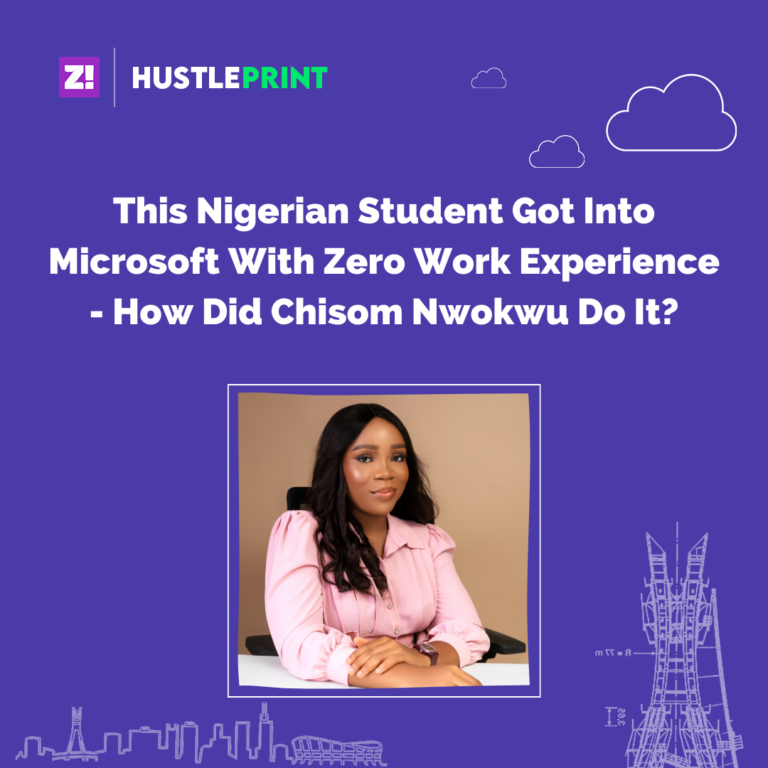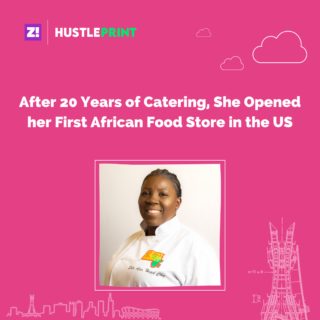The Nigerian work culture is currently going through heavy criticism. After the tweet on corpers sharing their worst Place of Primary Assignment (PPA) experience, we decided to dial it back a little to explore where work begins for a lot of young Nigerians — the National Youth Service Corps (NYSC). In this article, seven corpers shared their first taste of the shitty work culture in Nigerian companies.
1. “There was no power or internet, but we had to work”
— Tunde*, 24, Served in Abuja
I worked in a private firm with no generator or Wi-Fi. Whenever NEPA took the light, our boss expected his staff to keep working. Whether there was electricity or not, we were expected to stay at the office until 6:00 p.m. One day, we had a project, and our boss asked us to spend the night. NEPA took the light in the middle of the night, and we used our torchlight to work. This went on for the whole year I worked there. Imagine paying ₦60k to relocate from Akwa-Ibom to Abuja to suffer like that.
2. “I was cleaning out remnants of fish bones every day”
— Sarah*, 28, Served in Abuja
I worked my PPA to Abuja because I thought it would be a huge flex. Sadly, my PPA decided to flex on my mental health. First, I had to be at the office even on the days I had Community Development Service (CDS). Normally, corpers don’t work on the day they have CDS, but I had to rush back to the office.
The most disgusting thing to deal with was asking what he would eat every single day. It felt like I had been posted to NYSC as a maid. I’d buy him food, serve him in a tray and come back to carry the tray when he was done. I’d still clear out the remnants of fish bones, and wash the plates. It was disgusting to deal with. But that wasn’t even the worst part.
The worst part was his temper.
I remember the day he yelled at me and said I didn’t have any manners, all because I asked where I should keep his change after buying food. He was on a call, and it was valid to be upset that I just stood at his table waiting for a response, but calling me mannerless? Haba.
Should I talk about when a portion of the ceiling fell and he asked me to sweep away the bricks and dust? Look, Nigerians have problem. My advice: avoid any one-man business for your PPA.
RELATED: “My Life Ended When I started NYSC” — A Week In The Life Of A Tired Youth Corps Member
3. “My boss told me her dog was smarter than me”
— Adamu* 25, Served in Lagos
I advise people to run away from private firms as their PPA. It’s better to flex in a local government office and ghost the whole year. My NYSC was in 2021, and a friend recommended me to a company. It was a research organisation and my friend had worked closely with the lady that owned it. So there was no need to fret.
When I got into the company, there was a wave of staff leaving — that’s when I should’ve known. In a week, half of the staff left. I couldn’t even ask any questions because I was new and just a bloody corper.
As time went by, I understood why the staff retention was shit. My boss gave me a lot of work to do and absolutely no credit. Everything was impromptu, and I didn’t have my weekends anymore. The irritating part was how she’d call this the phase of bending down to work hard. Me too I believed that was the reality of corporate work.
She was always yelling at me. Even when I did exactly what she wanted, there was always a problem. Sometimes she’d ask why I didn’t take initiative to do what she asked differently. The last straw was being compared to her dog on one of her rants. She told me he had way more sense than I did. She even called the dog and asked it to do some tricks so I could see its level of intelligence. Omo. I suffered.
4. “Somebody say overworked and underpaid”
— Daniel*, 22, Served in Oyo
I served in 2019. I was posted to a private school in Saki, Oyo state. When I got the letter, I travelled there from Lagos with the sole aim of getting a rejection stamp. The principal begged me to stay because I studied English, and they needed an English teacher. We went back and forth on the issue. The man didn’t budge. I didn’t want to travel back to Lagos and come back again to beg him to reject me, so I agreed to stay in Oyo to teach.
The school’s set-up was horrible. First, accommodation was nothing to write home about. I’d wake up at night from cricket sounds and cockroaches crawling around me. A soft boy like me would wake up to kill cockroaches.
It’s not like the day was any better. Next, I’d have to wake up at 6:00 a.m. because teachers were expected to resume at 6:30 a.m. Assembly was by 7:00 a.m., so teachers spent the 30 minutes praying. Why? Then I’d spend the day joggling Primary 4 to JSS 2 English classes.
All of this stress and the school is still owing me the ₦7k salary they promised.
RELATED: 6 Nigerians Reveal How They Discovered They Were Underpaid At Work
5. “My boss used every opportunity to belittle me”
— Funmi*, 24, Served in Lagos
I served with an agricultural tech startup in Lagos — they also dabbled into real estate. When I arrived, the first thing HR told me was that salaries are typically delayed because of the poor network. I was already worried about the place. Next, the boss arrived. She sized me up and asked what I could possibly do for her firm. It felt very belittling.
Later on, I was assigned to work as a customer service representative, then moved to the social media team. I’d spend hours working on posts she never used. If she corrected me, it would’ve even helped. All she did was yell. This was despite using my data to work because the office internet was too slow or never lasted. When it was time to pay the ₦35k monthly salary, it was always delayed.
The worst part was having the salary deducted for lateness. So if you come in my 9:15 a.m. instead of 9:00 a.m., you’d get like ₦500 knocked off. Inside this Lagos traffic o.
6. “I went under the heavy rain to wind up his car windows”
— Precious*, 25, Served in Abuja
I was looking forward to getting started at the company I was assigned to in 2020. The company is an urban planning firm, and that was exactly what I studied.
The morning I arrived, I found out the company was new and barely had any staff. The few that were there were related to the boss. If I had any corporate world experience, that would’ve been my first red flag. Things slowly went to shit from there.
Beyond the constant need to be served breakfast and lunch, my boss was so demanding. My most annoying experience was being told to go in the rain to wind up his car window. When he said it, I stared at him utterly confused. If you’ve ever experienced Abuja rain, you’ll know how heavy it can be. It wasn’t like I had an umbrella or he offered me one. The man just expected me to run under the rain like a mad person. He didn’t even bother looking at me once he handed me the car keys. I did it sha. It wasn’t like I had a choice.
Two weeks later, the same thing happened. It was raining, and he left his window down. Who did he call? The corper. This time, I asked why he felt I should be the one running under the rain. This man looked me straight in the eyes and said, “Better you than me.” I was livid. But I went outside and wound up the glass again.
7. “I was dealing with spirits and stress”
— Kate*, 29, Served in Benue
I was shipped off to Benue for my NYSC in 2019. I was teaching at a public school, and there, I witnessed something called a “spirit”. Anytime the children were acting crazy, they referred to it as the spirit taking over. Three or four kids would turn the tables over, throw books, scream and generally torment the teachers. It happened at least once a week and lasted for an hour.
I never asked too many questions about this spirit. Sometimes the teachers would flog them in the middle of it. It felt like watching an exorcism. I’d simply hold on to my rosary and lock myself in the staff toilet whenever it happened. The weird part was having the kids run up to me the next day with hugs. I always wanted to tell them to get the hell away from me. I’d just smile and hug them back.
ALSO READ: My NYSC Diary




